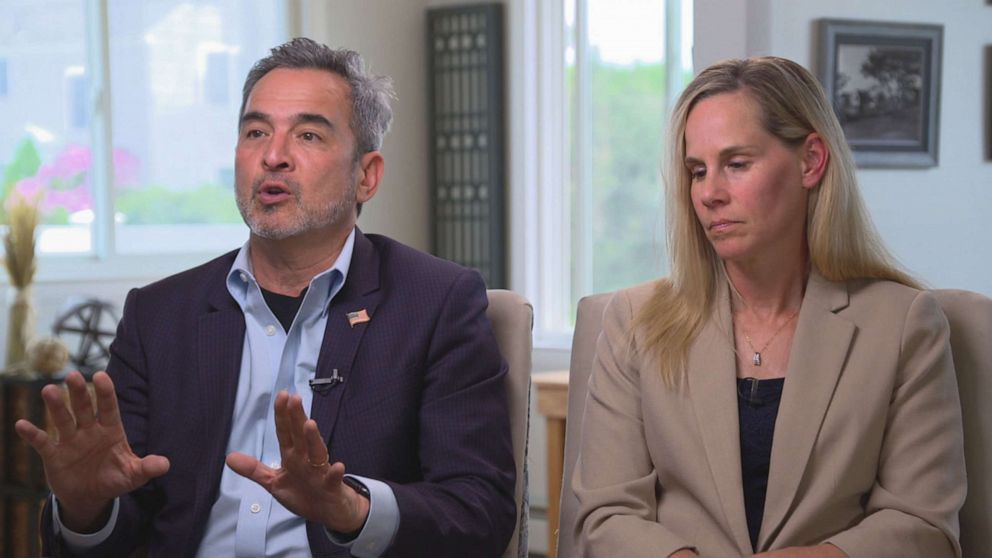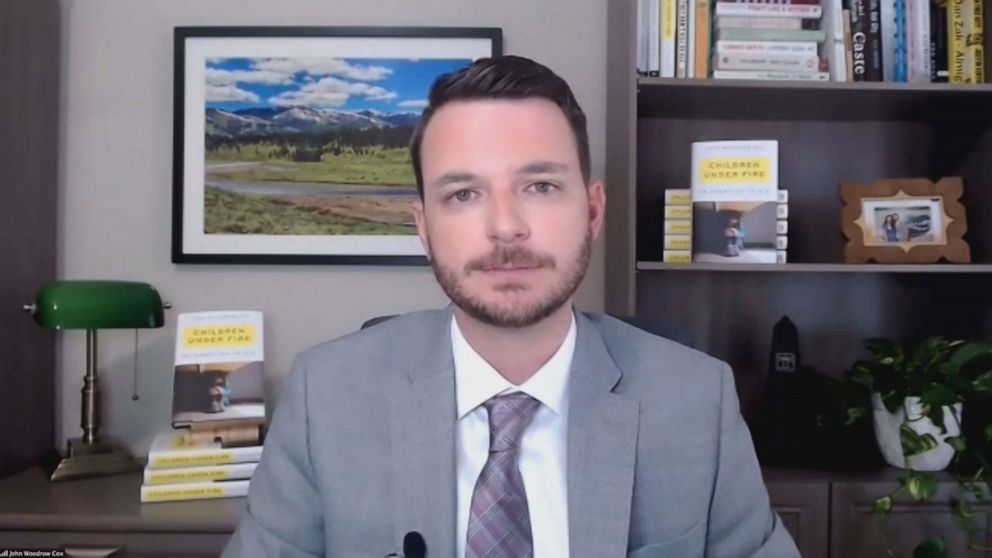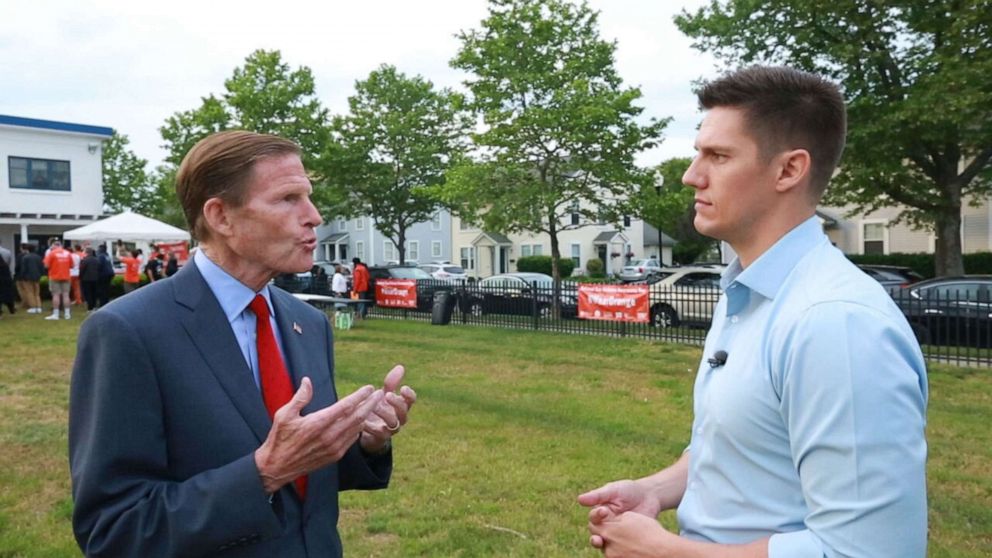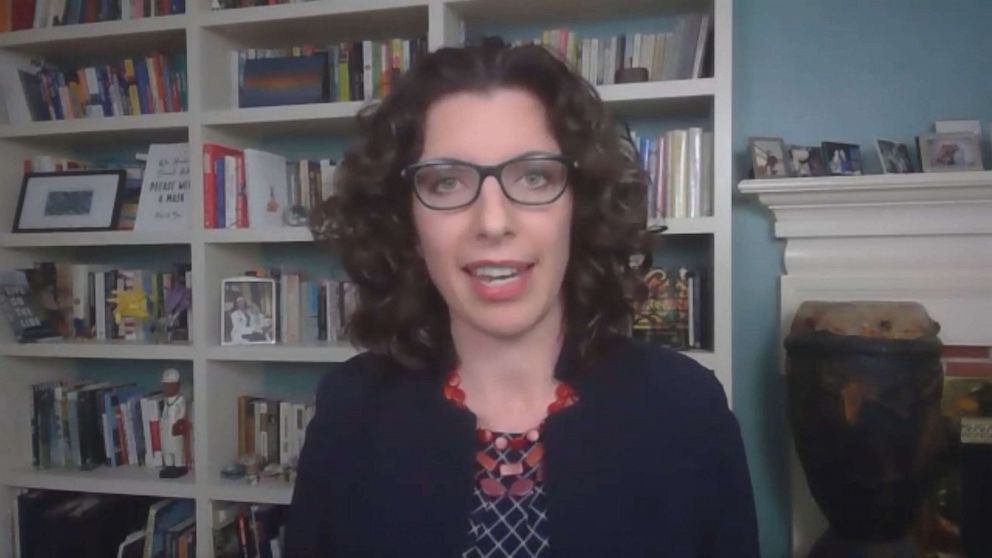People hoping to protect kids from accidental gun injuries, deaths push for stronger safety laws
Florida authorities found themselves locked in a gunfight this week with a 14-year-old girl and 12-year-old boy who they say ran away from a group home, broke into a house and found an AK-47, a shotgun and a handgun in a bedroom.
This incident is one of thousands that illustrate the complexities of gun violence in the U.S., and experts say guns are too accessible to kids, who could put themselves at risk of accidental injuries, if not death.
“[It’s the] second leading cause of death among kids, unsecured guns,” said Dr. Megan Ranney, an emergency physician at the Rhode Island Hospital. “We’re kidding ourselves if we don’t think kids know where guns are stored.”
Although gun owners living in homes with children are slightly more likely than other gun owners to store firearms safely, as many as 4.6 million minors live in homes where there are loaded, unlocked firearms, according to the Giffords Law Center. Just this year, there have been more than 90 unintentional shootings by children, which resulted in at least 62 injuries and 36 deaths.
Connecticut parents Kristin and Michael Song's youngest child Ethan died from a gunshot wound three years ago, just 12 days after he’d turned 15 years old.
“He was amazing,” said Kristin Song. “I always tell people, you can’t really teach empathy, and Ethan just got it. The one trait I loved about him the most was his compassion and empathy toward marginalized people, animals, people who didn’t have a voice. He really took pride in championing them.”
She said Ethan was the one of her three children who she worried about the least. They had just spent time together that morning, going to a restaurant after he’d had his braces removed.
“He was like, ‘Let’s go celebrate’ … and it was just magical. We just had a great, great conversation,” Kristin Song said.
When police showed up at their house on that fateful day, they told Ethan’s parents that they had to go to the hospital immediately. Once there, they were told that he had been shot in the head while playing with a handgun at his best friend’s house.
“That was the last day of my life -- my old life,” said Michael Song.

When the emergency room doctor told him that Ethan had died, Michael Song said he fell to the ground.
“It was like you’re falling off the cliff into the abyss… Something was just ripping your heart out as you were falling, and you felt like there was just this hole in you,” he said.
The grieving parents were never able to see their son because his face had been so disfigured from the wound.
“I was really adamant that I wanted to sit with Ethan,” Kristin Song said. “I was the one who brought him into this world and I wanted to be the last one to say goodbye, and I wanted to apologize to him and tell him I was so sorry that I couldn’t protect him because I really felt like that was my job. I failed; totally failed him.”
An investigation found that the handgun Ethan was playing with had been one of three “stored in a cardboard box inside a large tupperware container” in the closet of his friend’s father, according to a statement from the Connecticut Division of Criminal Justice. The gun had been unloaded and “secured with an operable gun lock,” the statement said, but the keys to the lock were hidden under clothes in the same tupperware container.
The father who owned the gun was not charged in connection to the incident because “the gun owner’s conduct in storing the guns did not itself violate the law” and “there [was] a lack of evidence that he knew, or should have known, that a juvenile was likely to gain access to the guns without his permission,” the statement said.
Michael Song said he’d had conversations with Ethan about handling guns in the past, and recalled one time when Ethan was playing with a toy gun and shot a foam-tipped dart at his chest. He said he told Ethan, “If you ever have a gun in your hand, you never, never, ever point it at anybody.”
“I really got in his face and I said, ‘Do you understand?’” he added.
While Michael Song said he understands that kids make mistakes, both of Ethan’s parents expressed guilt for being unable to keep their son safe.
“We weren’t flawless parents, either. We made mistakes. ... I loved and cherished my children, and I think I did a good job, but … at the end of the day, I have a dead child,” Kristin Song said. “So I always kind of go back to what went wrong, and where did I miss the signs.”
John Woodrow Cox, author of “Children Under Fire: An American Crisis,” says that while mass shootings and school shootings are horrific -- and often the focal point of kids’ involvement in gun violence -- accidental shootings like Ethan’s are a larger issue.

“America seldom cares about one child dying in a shooting, even when it comes to school shootings,” he said. “Most kids who die because of guns are unlocked, it’s just that one child. But it happens all the time, and the cumulative effect is enormous. … [There are] hundreds and hundreds of children every year who shoot themselves accidentally, who shoot their friends accidentally, who shoot their parents accidentally -- kids as young as 2.”
Kristin Song said her son’s death hurt her so much that at one point she considered suicide. “It was like having 1,000 stones piled up on your chest,” she said. But then, one morning, she said her other son helped her turn the page.
“I remember he was packing his backpack and then he looked up and he said to me, ‘You’re not going to hurt yourself, are you?’ And I was totally like, ‘How the hell did he know?’ And he said, ‘Mom, if I lose another member of this family, I’m checking out, too.’ And so then, at that point, I was like, ‘Forget it. I have to live now.’”
With the pain of losing their child still raw, the Song family has directed their pain into advocacy. They lobbied for a safe storage law, called Ethan’s Law, that requires gun owners in Connecticut to secure their firearms in a way that prevents children from gaining access, including using a passcode-protected safe box. Gun owners could also face jail time in the state if their weapon accidentally wounds or kills someone.
“We realized that if you lose a child, you gain a mission,” Michael Song said. “And from there, we began working on Ethan’s Law.”
Connecticut lawmakers passed the eponymous bill 18 months after Ethan died. The Songs are now on a mission to make Ethan’s Law a national standard, working with politicians like Connecticut Sen. Richard Blumenthal, who invited Kristin Song to testify at a Congressional hearing last month.

“I’ve known Mike and Kristin as a public official, but really, as much as a parent,” Blumenthal said. “I feel what happened to them is every parent’s worst nightmare. My four children could have been Ethan, and every parent should feel that way about safe gun storage.”
“Safe storage doesn’t take a single gun away from any person,” he added. “No matter who that person is, safe storage leaves that gun in that person’s possession. It just means it’s stored in a place that other people can’t get to, and it makes such common sense.”
Ranney has spent the last decade trying to depoliticize gun violence. After treating hundreds of people with gunshot wounds, she says that it’s actually a public health crisis and it needs to be treated that way.
“We can pass all the laws we want, but at the end of the day, we have to work with community groups, we have to work with our neighbors. We have to be educated and we have to provide people with strategies that feel comfortable and appropriate to them for how to change what they do. So, this is about making gun safes more easily available and cheaper. It’s about changing the norms around the way that people store their firearms or their ammunition. And it’s about making it a community standard that you expect that your friends and neighbors are going to store their gun in a way that your family members can’t get access to it.”
Through her work, Ranney was able to receive rare funding from the Centers for Disease Control and Prevention to further study gun violence. She also founded the American Foundation for Firearm Injury Reduction in Medicine, or AFFIRM, which focuses on preventing gun violence through a public health approach.

“We look for risk factors. We look for ways to prevent the shooting from happening before someone actually gets wounded,” she said. “And then we try to address that ripple effect of trauma, which inevitably follows from any gunshot wound.”
As Ethan’s classmates prepare to graduate from high school in two weeks, his parents recently visited his grave -- their first time there since he was buried three years ago. Kristin Song said she remembered telling him earlier on the day he died that he was going to have an impact on the world.
“It’s funny,” she said, “because I didn’t actually connect it until a lot further out, and then I was like, ‘Oh my God.’ I remember saying that to him … ‘You’re going to make such a big difference in the world.’ And here he’s making a difference in this world, and I’m just the conduit of him making a difference in the world.”





